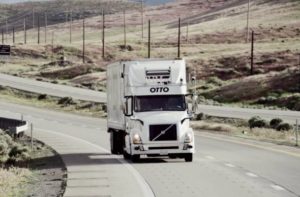Written by: Aarian Marshall
A DAIS STUFFED with well-fed lawmakers sure doesn’t look like a battlefield, but make no mistake: The long-awaited war between self-driving vehicles and the humans they would replace has begun. And the humans just won the first skirmish.
Thursday morning, the Senate released the first version of autonomous vehicle legislation meant to clarify who exactly is in charge of robocar regulations. (The bill, like its companion passed this summer in the House, would put most of the vehicle design oversight in the hands of the federal government.) It comes a few weeks after senators circulated a draft of the rules, and contains a significant difference from the older version: The Senate deleted the original mention of commercial motor vehicles like trucks and buses. Now big vehicles are exempt from the bill—meaning that rules for self-driving trucks are still unclear.
It’s a small but noteworthy loss for the burgeoning self-driving trucking industry and the innovators therein, like Uber, Tesla, and Amazon, which have all lobbied for clear national rules governing the autonomous big rigs they want to build, sell, or use. And it’s an early win for the labor unions, whose influence in Washington has taken a precipitous dive since the 1980s, and more specifically for the Teamsters, which represents almost 600,000 truck drivers nationally and had asked legislators to keep their commercial vehicles out of the discussion, at least for the time being.
“The issues facing autonomous commercial trucks are fundamentally different, and potentially more calamitous, than those facing passenger cars, and warrant their own careful consideration,” Teamsters rep Ken Hall told the Senate during a hearing on autonomous trucks earlier this month.
Self-driving trucks are an inevitability. Witness this big rig driver flip on robo-mode and clamber into the back seat during a demonstration last year. “It should be much quicker for commercial autonomous vehicles to be in the market as real products that are generating revenue and building real businesses,” says Stefan Steltz-Axmacher, the founder of truck tech company Starsky Robotics.
But the prospect of robot trucks raises questions. Are they safe? Are they cybersecure? And, critically, will they strip 3.4 million American truck drivers of a living wage? Trucking is the most popular occupation in at least 20 states, a rare job that pays decently (about $41,000 a year on average) without requiring a college diploma.
Source: https://www.wired.com/story/trucks-robocar-senate-war/


Recent Comments